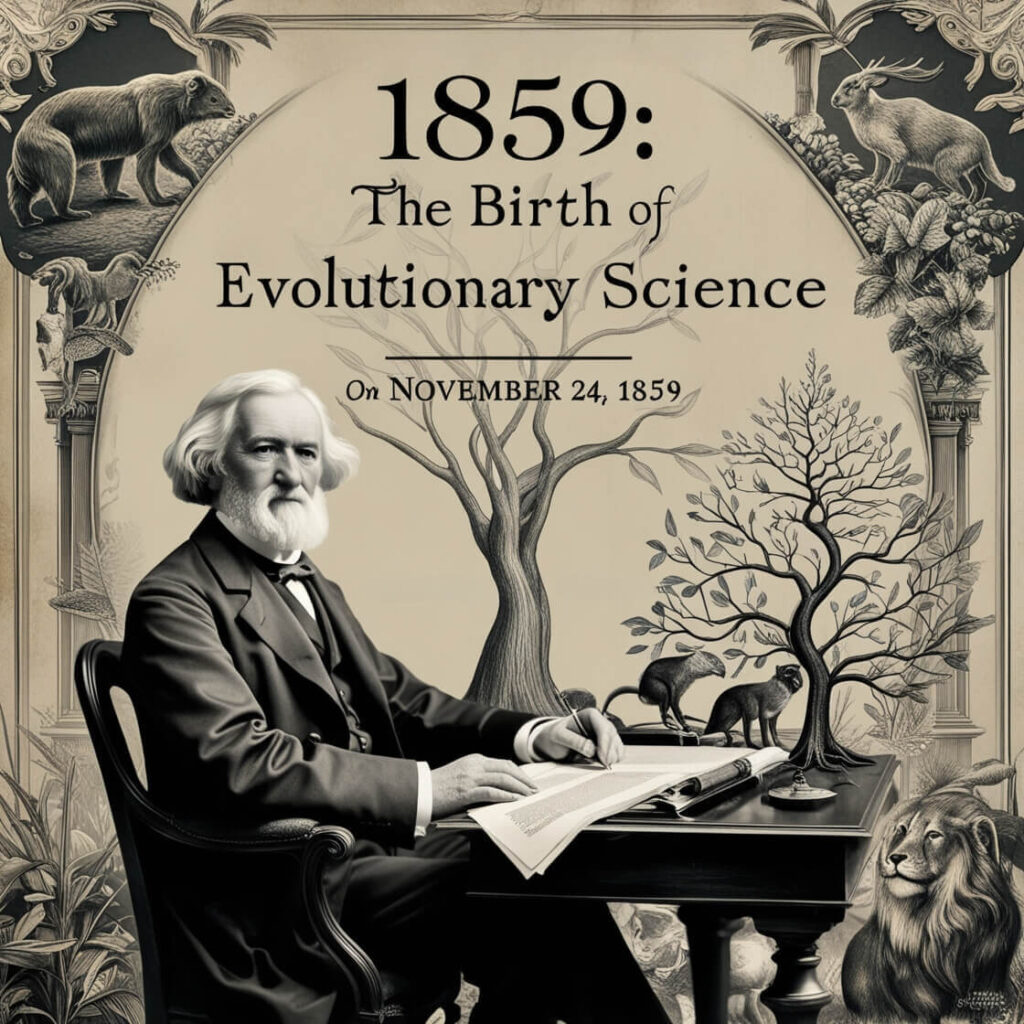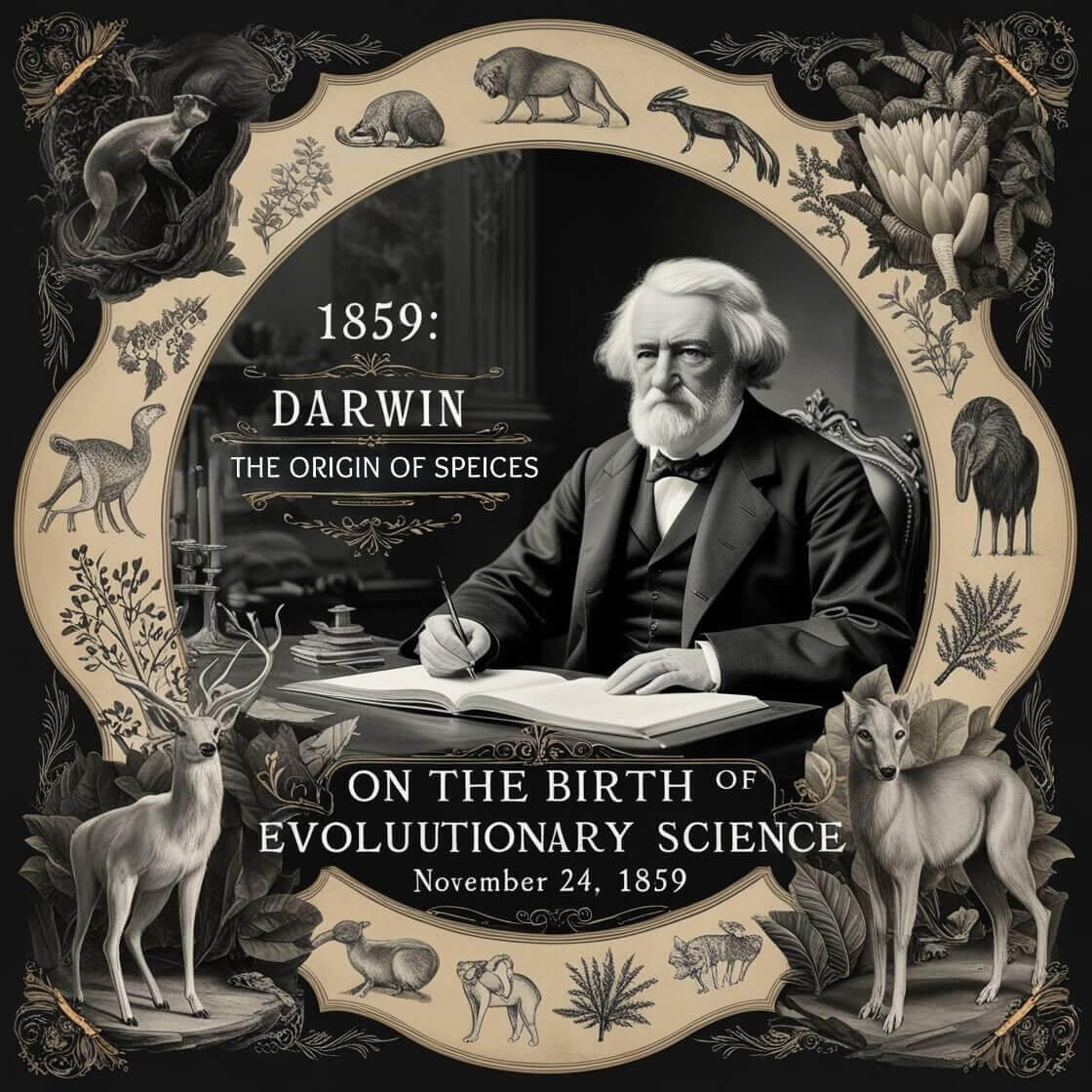Charles Darwin’s ‘On the Origin of Species’: A Scientific Revolution
On November 24, 1859, the world of science changed forever when Charles Darwin published his groundbreaking work, On the Origin of Species. This monumental book introduced the theory of evolution by natural selection, challenging traditional views and laying the foundation for modern biology.
The Journey to Discovery
Darwin’s theory wasn’t a sudden revelation; it was the result of years of meticulous observation and research. His voyage aboard the HMS Beagle (1831–1836) played a pivotal role in shaping his ideas. During this journey, Darwin observed diverse species, particularly in the Galápagos Islands, where he noted variations among finches and other animals. These observations became the bedrock of his theory, which explained how species evolve through natural selection.
A Bold and Transformative Idea
When On the Origin of Species was published, it introduced concepts that were both revolutionary and controversial. Darwin proposed that all species, including humans, share common ancestors and evolve through a process of survival and adaptation. He explained that organisms better suited to their environments are more likely to survive and reproduce, passing their advantageous traits to future generations.
This theory of natural selection not only challenged established religious beliefs but also redefined humanity’s place in the natural world. Despite facing criticism, Darwin’s work gained support from many in the scientific community, marking the beginning of a new era in science.
Key Contributions to Science
Darwin’s book made several lasting contributions:
- It introduced the concept of natural selection, a cornerstone of evolutionary biology.
- It provided a unifying theory that explained the diversity of life on Earth.
- It inspired further research in genetics, anthropology, and paleontology.
The simplicity and universality of Darwin’s ideas made them accessible yet profound, influencing not only science but also philosophy, ethics, and sociology.
Public Reception and Controversy
When On the Origin of Species was released, it sparked widespread debate. While many scientists recognized the significance of Darwin’s findings, others, particularly from religious communities, opposed them. The idea that humans shared ancestors with apes was particularly contentious. Over time, however, Darwin’s ideas gained widespread acceptance, cementing his legacy as one of the greatest scientists in history.
“It is not the strongest of the species that survive, nor the most intelligent, but the one most responsive to change.” – Charles Darwin
The Lasting Legacy of Darwin’s Work
Today, Darwin’s contributions are celebrated worldwide. His theory of evolution has become a cornerstone of modern science, shaping fields like genetics, ecology, and biotechnology. The principles outlined in his book continue to inform scientific inquiry, making it one of the most influential texts ever written.

Conclusion
Charles Darwin’s On the Origin of Species revolutionized how we understand life on Earth. By introducing the theory of natural selection, Darwin not only challenged traditional beliefs but also inspired generations of scientists and thinkers. As we reflect on this monumental event, we recognize the profound impact of his work on our understanding of the natural world.



